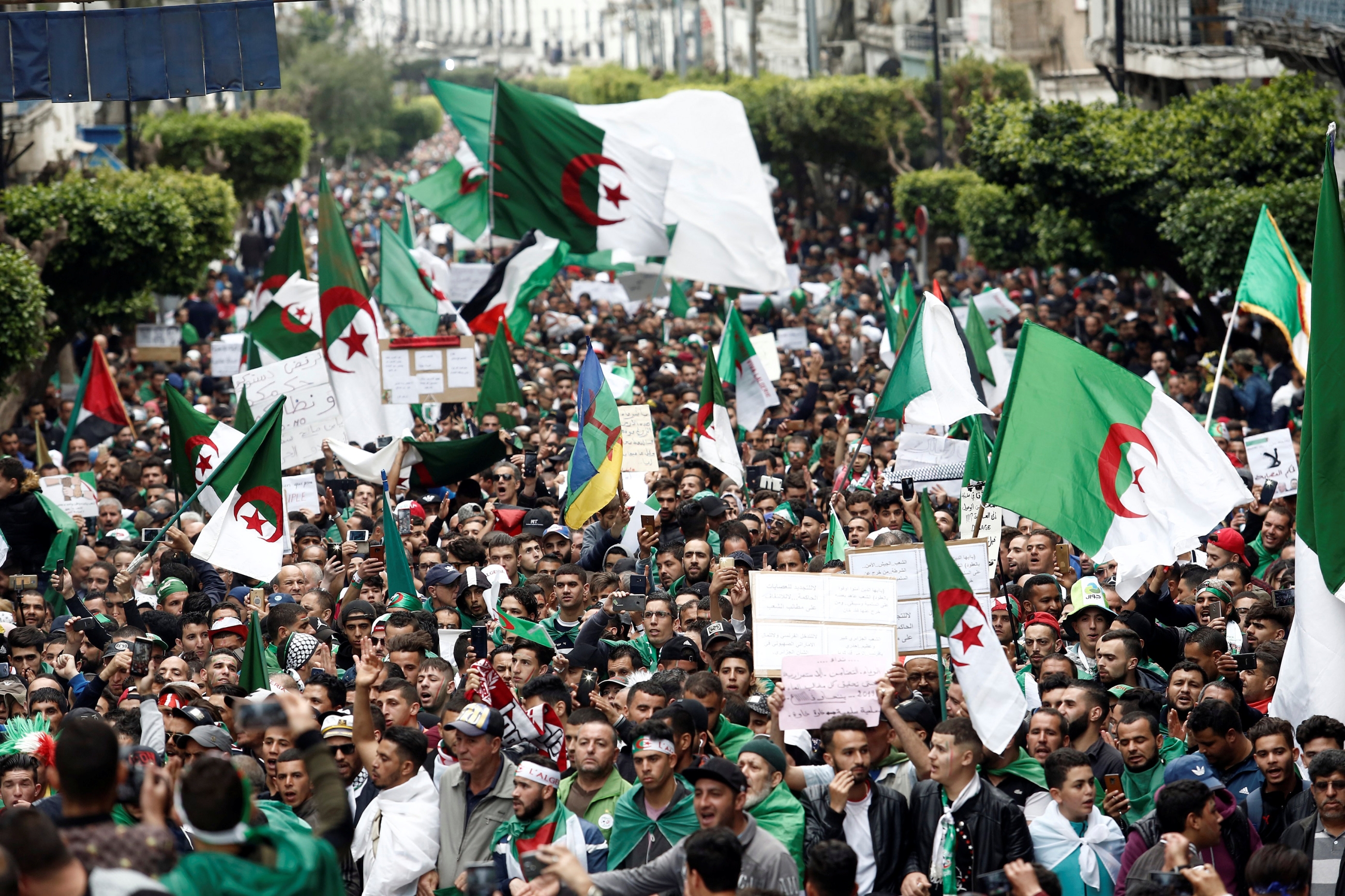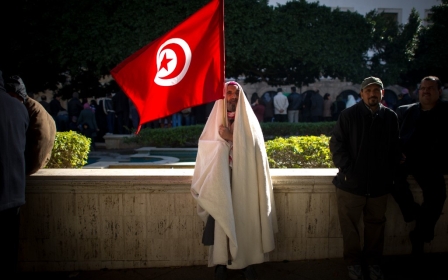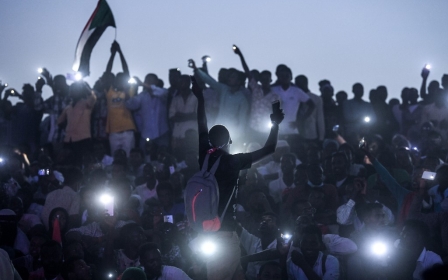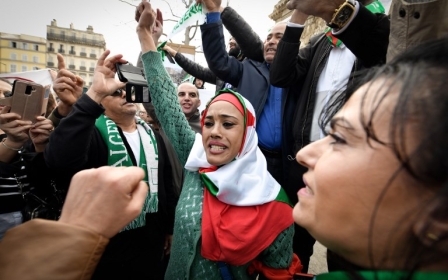Tens of thousands of protesters call for ousting of Algeria's ruling elite

On Friday, protests in Algeria pressed on, with tens of thousands across the country marching for a 10th consecutive week to demand the overthrow of the political system and the weeding out of corrupt officials.
"It's an atmosphere of determination to carry on and keep mounting the pressure," Malia Bouattia, a 31-year-old activist, told Middle East Eye from the northeastern city of Constantine, where more than 15,000 people gathered in the old town.
Friday's protests are seen as a test of the movement's ability to remain mobilised even as Algerian authorities have launched an anti-corruption drive, firing symbols of the former government and arresting people close to former president Abdelaziz Bouteflika over graft allegations.
Around a dozen businessmen with ties to Bouteflika's inner circle are reportedly under investigation, according to Algerian media.
But the anti-graft push, which was supported by army chief Ahmed Gaid Salah, has yet to appease the protesters. They have also rejected an interim government set up by the military following Bouteflika's resignation earlier this month under heavy pressure from the army and after weeks of mass protests.
"After every announcement of an arrest or resignation, Algerians say: 'OK next.' They celebrate for five minutes but immediately start preparing for the next demonstration," Bouattia said.
The interim government, then, is seen as an extension of the elite that has ruled the country since its independence from France in 1962.
Like everywhere else in the country, Constantine, the third-largest city in Algeria, is suffering from high unemployment, corruption that trickles down to every aspect of its residents' daily lives, and an educated youth living in despair due to the lack of opportunities.
Protesters in the city raised their voices and flags against government figures, chanting "They've all got to go" and "My country, I will give you my life".
Earlier this week, five Algerian billionaires, including the country's richest man, were arrested as part of the corruption probes. That same day, Finance Minister Mohamed Loukal and former prime minister Ahmed Ouyahia were called for questioning over suspected misuse of public funds.
Army chief Salah had called on prosecutors to "accelerate the pace" of the investigations into those with ties to Bouteflika's inner circle.
But while people are in favour of the latest series of arrests, Bouattia said they remain wary of the anti-corruption efforts and are not willing to accept these "minor concessions" as the limit of what can be done to affect real change in their country.
The chief demand of the protesters is the ousting of Interim President Abdelkader Bensalah, who was a close associate of Bouteflika throughout his rule, and Noureddine Bedoui, who has been prime minister since 11 March and is another member of the ruling elite.
Directing their messages to the elite, a crowd in the capital chanted "the people want to uproot you". Some protesters carried banners that read, "The system must go" and "We are fed up with you".
"Algerians have a total understanding of what is going on. They are calling the corrupt figures in all sectors by name, despite the years of secrecy and censorship led by the regime," Bouattia said.
The interim government has said presidential elections will be held 4 July, but protesters reject any such vote overseen by Bouteflika-era officials.
Middle East Eye propose une couverture et une analyse indépendantes et incomparables du Moyen-Orient, de l’Afrique du Nord et d’autres régions du monde. Pour en savoir plus sur la reprise de ce contenu et les frais qui s’appliquent, veuillez remplir ce formulaire [en anglais]. Pour en savoir plus sur MEE, cliquez ici [en anglais].




